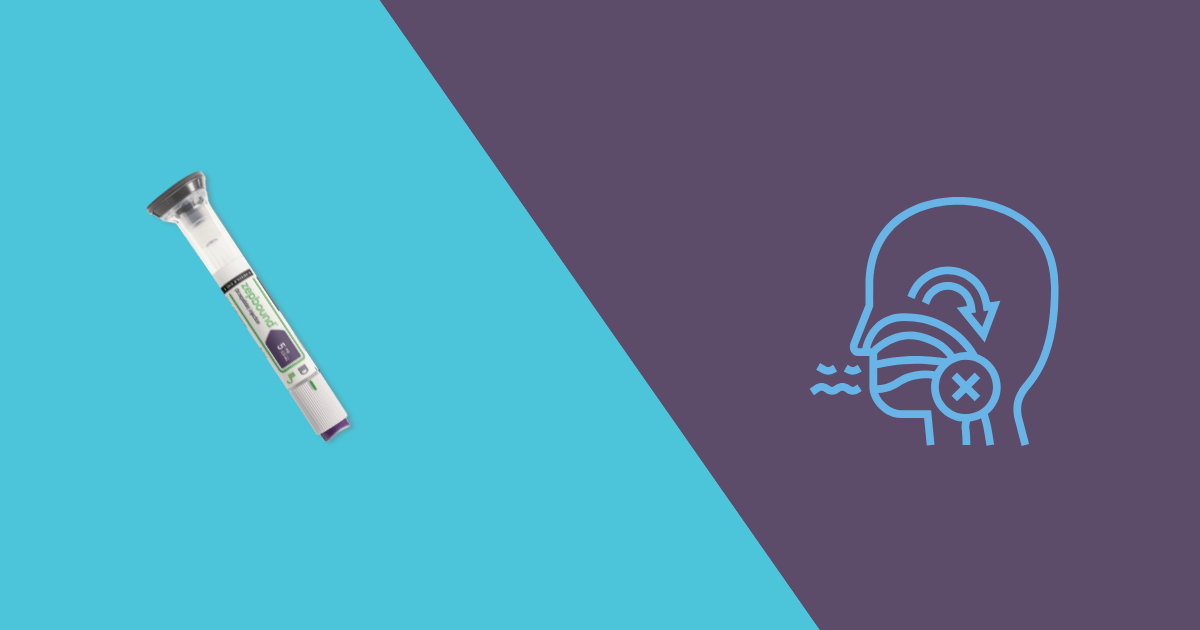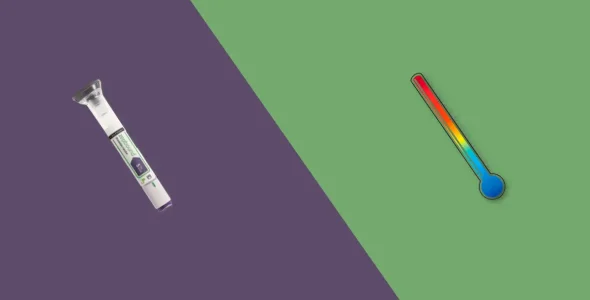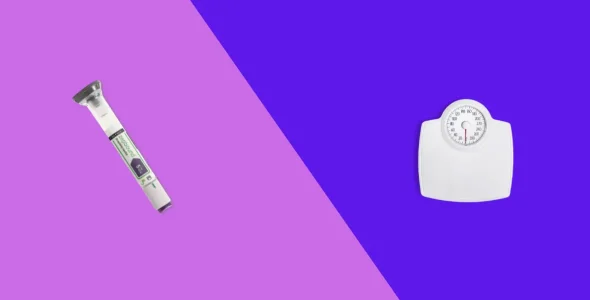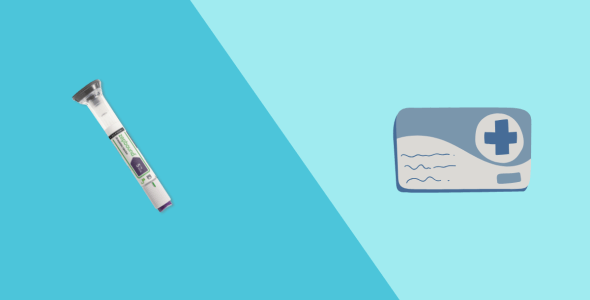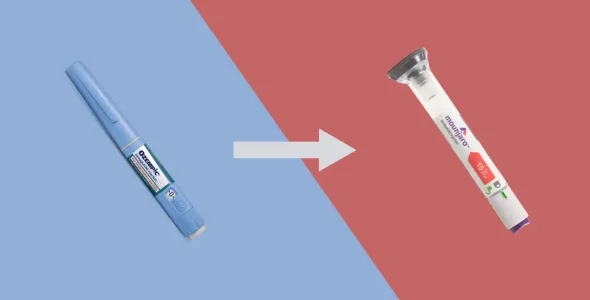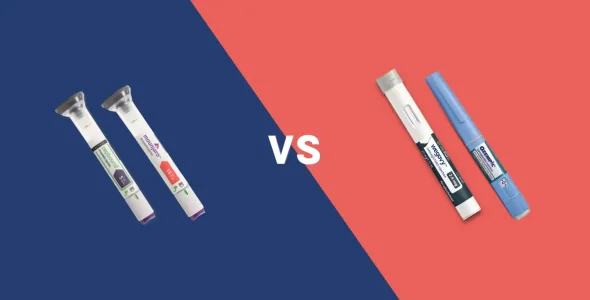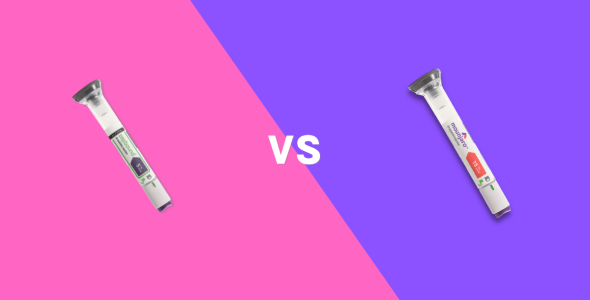FDA approves Zepbound (tirzepatide) for obstructive sleep apnea (OSA)
Key highlights
- The US. Food and Drug Administration has approved Zepbound for the treatment of moderate to severe OSA in obese patients.
- Phase 3 clinical trials showed that tirzepatide, the active ingredient in Zepbound and Mounjaro, is an effective treatment for obstructive sleep apnea.
- Obesity is the major contributing factor to OSA, as fat deposits in the upper airway cause narrowing of the airway.
- Zepbound targets GLP-1 and GIP receptors to suppress appetite and promote weight loss, which improves OSA symptoms.
- Zepbound is not suitable for patients with a previous history of allergy to tirzepatide, pancreatitis, renal issues, and hypoglycemia.
Zepbound (tirzepatide) is a prescription drug that targets GIP and GLP-1 hormones. Previously, it was approved by the US. Food and Drug Administration for chronic weight loss management in adults with obesity and overweight as an adjunct to exercise and dietary modifications.
Recently, the US. Food and Drug Administration (FDA) approved Zepbound for the treatment of moderate-to-severe sleep apnea in obese patients in addition to a low-calorie diet and increased physical activation. Obesity is the leading cause of OSA (obstructive sleep apnea). As Zepbound reduces body weight, it is also helpful for the treatment of obstructive sleep apnea.
This article details how Zepbound is helpful in obstructive sleep apnea, its impact on weight loss, and who can benefit from the medication.
What is Zepbound?
Zepbound (tirzepatide) is an FDA-approved medication for weight loss and obstructive sleep apnea. It’s manufactured by Eli Lilly. The US. Food and Drug Administration (FDA) previously approved Zepbound for weight management in:
- Obese patients (BMI greater or equal to 30)
- Overweight patients (BMI equal to or greater 27) with one weight-related disease such as diabetes, high cholesterol levels, and hypertension
On December 20, 2024, the US. Food and Drug Administration approved Zepbound for the treatment of moderate to severe sleep apnea in obese adults, along with a low-calorie diet and increased physical activity.
Zepbound (tirzepatide) is an injectable weight loss drug that treats obstructive sleep apnea by shedding excess weight or keeping the weight off in obese people.
Tirzepatide is a GIP and GLP-1 receptor agonist. It selectively binds to GIP and GLP-1 receptors and activates them. GLP-1 is a hormone that regulates appetite and calorie intake. By targeting these receptors, it suppresses appetite and delays gastric emptying which reduces calorie intake. Lower calorie intake promotes weight loss and maintains weight reduction. Weight reduction plays a significant role in the management of obstructive sleep apnea.
Understanding obstructive sleep apnea (OSA)
Obstructive sleep apnea (OSA) occurs when the upper airway collapses or narrows during sleep. The supporting muscles in the throat relax, which closes the airway and interrupts breathing and sleep. Its symptoms include:
- Loud snoring
- Frequent interruptions in breathing during sleep
- Gasping
- Snorting
- Choking
- Waking up out of breath
OSA is usually associated with daytime sleepiness, morning headaches, forgetfulness, feeling grumpy, poor performance, depression, fatigue, and loss of interest.
Obesity, smoking, large tonsils, large tongue, family history of OSA, and retrognathia (lower jaw shorter than the upper jaw) are the risk factors for obstructive sleep apnea. Obesity is the major contributing factor of OSA which is prevalent in about 69% of people with obesity.
Obstructive sleep apnea negatively impacts overall health. It can cause serious health problems such as hypertension (higher blood pressure), stroke, heart diseases, type 2 diabetes, atrial fibrillation, and pulmonary hypertension.
How does Zepbound help with obstructive sleep apnea?
Like Ozempic and Wegovy, Zepbound also suppresses appetite and promotes weight loss which improves obstructive sleep apnea symptoms. Zepbound targets GIP (glucose-dependent insulinotropic peptide) or GLP-1 (glucagon-like peptide 1) to suppress appetite. However, it is more effective than semaglutide in weight loss and weight management. A clinical trial demonstrates that Zepbound (tirzepatide) showed more efficacy in weight loss than other GLP-1 receptor agonists such as Wegovy and Ozempic.
Obstructive sleep apnea and obesity
Obesity is the leading cause of sleep disorders, including sleep apnea. A research study indicates that obesity leads to the deposition of extra fats in the upper respiratory tract, which obstructs breathing during sleep and leads to OSA.
Moreover, obesity increases abdominal girth due to the deposition of excessive fats. It compresses chest walls and decreases lung volume. The reduced lung capacity collapses the upper airway, leading to sleep apnea.
Weight loss improves sleep apnea
The American Thoracic Society states that only 5-10% weight reduction significantly improves OSA. In a SARMOUNT clinical trial, tirzepatide showed a 20.9% initial mean weight reduction after 36 weeks. These studies indicate that Zepbound is highly effective for weight management, which improves the symptoms of OSA.
Clinical studies on Zepbound and OSA
The US. Food and Drug Administration approved Zepbound based on phase 3 clinical trial results that compared the effect of tirzepatide for the treatment of moderate-to-severe OSA and obesity versus placebo.
The trial randomized 469 participants and evaluated the changes in AHI (apnea-hypopnea index) after 52 weeks. The trial 1 included patients who were not receiving PAP therapy (positive airway pressure), and trial 2 involved patients who were receiving PAP therapy. The participants received a maximum tolerated dose of tirzepatide (10-15mg) or placebo for 52 weeks.
The results demonstrate that Zepbound (tirzepatide) reduced breathing disruptions by 25-29 per hour versus placebo, which reduced breathing disruptions by 5 per hour. Moreover, a greater proportion of participants experienced remission in OSA after one year compared to placebo. Participants who used Zepbound lost 18-20% of body weight in contrast to 2% with placebo. Greater weight loss was observed in patients using PAP therapy.
Considerations and limitations
Zepbound is the first prescription medicine approved for OSA. However, the American Academy of Sleep mentions that obesity medications may be effective for the treatment of obstructive sleep apnea, but some patients may require other interventions like CPAP, oral appliances, and positional therapy in addition to weight management.
The phase 3 double-blinded, randomized, and controlled trials that assessed the effectiveness of tirzepatide demonstrate that patients using PAP therapy showed more improvements in OSA symptoms and weight management compared to placebo.
The side effects of Zepbound include nausea, diarrhea, abdominal pain, vomiting, hair loss, heartburn, constipation, fatigue, and belching.
Research studies demonstrate that Zepbound causes thyroid cancer in rats. Do not use the medication if you or any of your family have ever had a thyroid tumor called medullary thyroid cancer (MTC) or Multiple endocrine neoplasia syndrome type 2 (MEN2, an endocrine system condition).
If you experience severe stomach problems, kidney problems or kidney failure, inflammation of the pancreas (pancreatitis), and hypoglycemia (low blood sugar levels), stop using Zepbound and immediately visit your doctor.
Moreover, consult your healthcare provider for dose adjustments if you feel changes in vision, behaviour, and mood or experience suicidal thoughts
Zepbound is not suitable for patients with a history of allergic reactions to tirzepatide or any of its ingredients. If you notice any symptoms of an allergic reaction, seek medical help immediately. It is not recommended to combine Zepbound with other GLP or GLP-1 receptor agonists and tirzepatide-containing products.
Alternative treatments for obstructive sleep apnea
Alternative treatments for OSA include CPAP, oral appliances, surgery, and lifestyle modifications for weight loss.
CPAP, or continuous positive airway pressure therapy, is the first line treatment for obstructive sleep apnea. It is a highly effective treatment for OSA that is administered through a face mask. If CPAP is not effective, Bilevel positive airway pressure (BPAP) is used.
Oral appliances are suitable for patients with mild to moderate OSA who don’t benefit from CPAP therapy. These appliances prevent your muscles from relaxing and collapsing the airway.
Surgical treatment for OSA is used to improve the patency of upper airways in case of obstruction. There are various surgical therapies, and the selection of surgical modality depends on the underlying cause of obstruction that is leading to OSA. There is no one size fits all surgical procedure for all patients.
Lifestyle changes such as dietary modifications and exercise are highly effective for patients with OSA. Exercise increases cardiorespiratory fitness and sleep efficiency and helps with weight management. A research study indicates that exercise is the second most effective approach behind CPAP in the management of OSA.
Low-calorie diet helps in weight management. Studies show that a calorie-restricted diet with low-fat content (less than 30% calories from fats) induces weight loss in obstructive sleep apnea patients. Maintaining good sleep hygiene is also helpful in managing OSA.
All of these alternative treatment options help manage OSA directly. In contrast, Zepbound indirectly treats OSA by shedding extra pounds of weight, which in turn improves symptoms of this condition. A combination of Zepbound with traditional treatments may be highly effective. The FDA also emphasizes the importance of exercise and lifestyle medication along with Zepbound use. However, it can be an alternative treatment option for patients who can not tolerate CPAP.
Who could benefit from Zepbound for OSA?
Adult patients with obesity-related obstructive sleep apnea or overweight patients are ideal candidates for Zepbound. It is always used in combination with exercise and dietary changes for weight management. Its efficacy has not been studied in children yet.
If you are already using insulin or insulin secretagogues such as sulfonylureas, consult your doctor for dose adjustments before starting Zepbound, as this medication also lowers blood glucose levels. The combination of both drugs can cause hypoglycemia.
Keep in mind that Zepbound alters the effectiveness of oral hormonal contraceptives. Speak to your healthcare provider about switching to other non-oral contraceptive methods or barrier methods for contraception. Moreover, if you are taking any supplements, inform your doctor.
Bottom line
The US. Food and Drug Administration has approved Zepbound to treat moderate to severe obstructive sleep apnea (OSA) in obese patients when combined with exercise and a reduced-calorie diet.
Zepbound suppresses appetite by targeting GIP and GLP-1 receptors to promote weight reduction in obese and overweight patients. As OSA is linked to obesity, Zepbound indirectly treats OSA by shedding extra weight.
Consult your healthcare provider before starting this medication. It is not indicated for patients with thyroid cancer and MEN 2 syndrome and those allergic to tirzepatide or its ingredients. If you experience severe stomach issues, pancreas inflammation, renal failure, or low blood sugar levels, stop using Zepbound and visit your healthcare provider immediately.

